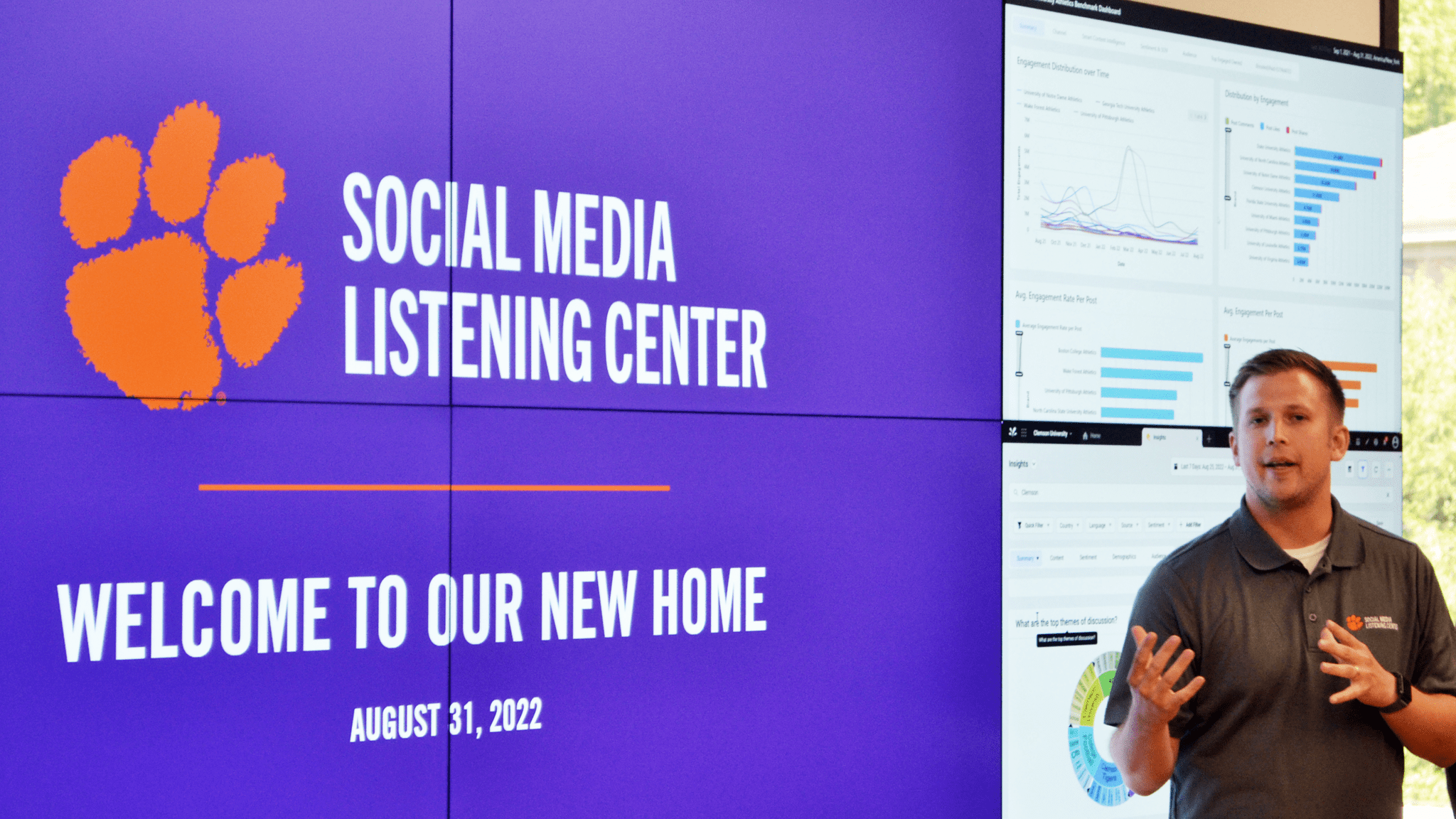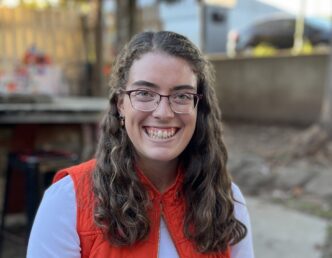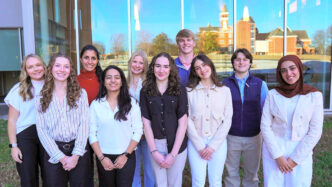Brandon Boatwright, Ph.D., assistant professor in the Department of Communication and director of Clemson’s Social Media Listening Center (SMLC), was recently awarded the inaugural GRIT award for Research in the Sports Sciences at the Robert H. Brooks Sports Science Institute’s (RHBSSI) first annual RECESS Symposium. The event celebrated sports science research and creative endeavors across the University, ranging from hamstring devices which assist in running to forensic analysis of social media discourse around the 2024 Paris Olympics.
Boatwright stands out among the crowd for both his dedication to his craft and the uniqueness of his research. “I try to look at sport through a social lens, meaning I am primarily looking at how social issues within sport develop in online spaces,” he said. “I then study the social media analytics and identify the users online who are creating meaning around conversations in sport.”
Let’s break that down into the intersection of sport, social media and opinion leadership. For his dissertation at the University of Tennessee, Boatwright looked at how people were discussing anthem protests across different time periods, races and genders — namely, Colin Kaepernick in 2016 and Megan Rapinoe in 2019. After pulling hundreds of millions of related twitter posts, Boatwright reached out to who he identified as key figures in the discourse and explained how they were flagged as opinion leaders.
There you have it: sport, social media and opinion leadership.
A fourth prong developed on its own as common themes began to merge. “Sport is not immune to politics by any stretch. It actually often reaffirms or even causes political polarization. I try to focus on and explore how political polarization happens in sports, but it’s really a two-way street,” he explained.
Sport is not immune to politics by any stretch. It actually often reaffirms or even causes political polarization. I try to focus on and explore how political polarization happens in sports, but it’s really a two-way street.
BRANDON BOATWRIGHT, PH.D., ASSISTANT PROFESSOR, DEPARTMENT OF COMMUNICATION
For example, the recent explosion in conversation around transgender athletes and debates over the definition of gender and sexuality have taken over the majority of political discourse in sport. As part of his grant work funded by the Institute, Boatwright looked at social media conversations surrounding the Olympics, specifically the spread of misinformation and disinformation surrounding Algerian boxer Imane Khelif.
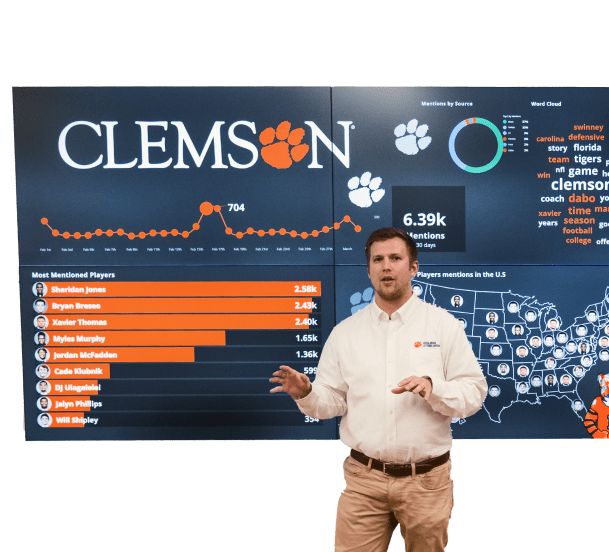
The International Boxing Association – a Russian-owned organization that was banned from the Olympics due to corruption — had stipulated that Khelif had failed a supposed gender eligibility test. They subsequently refused to provide proof of the test or results, but the damage was done: X, formerly known as Twitter, took over, with hundreds of thousands of comments demanding she renounce her gold medal for being a man, even though in her own words “I’m a woman like any other woman. I was born a woman. I lived as a woman. I competed as a woman. There’s no doubt about that.”
Boatwright analyzed the opinion leaders of these conversations, looking at how they specifically amplified or attempted to lessen outrage. This niche interest took years for him to develop and not without several speed bumps along the way.
“When I started studying social media, everyone thought it was just going to be a phase, not a continuous research trajectory,” he said. “Fourteen years later, that has proven to not be the case.”
Boatwright was a master’s student at Clemson in 2012 when the SMLC was created. “I worked as the associate director, and I realized there’s a lot of really cool things you can do with data online and got really into social media analysis.”
As a member of the Department of Communication at Clemson, he works from a social scientific perspective, specifically social psychology. This branch of study attempts to understand how people process complex information and issues such as the ones seen online.
“The way that we view social issues is like the way that we taste food — someone may think something is too sweet or too sour, and that’s exactly how we view those social causes,” he explained.
The work I do within sport looks at how we can utilize these controversies and polarizing issues as a way to make connections rather than cause further division, because if we can understand where people across the political or ideological spectrum think about certain issues, maybe we can have more productive conversations around them.
BRANDON BOATWRIGHT, PH.D., ASSISTANT PROFESSOR, DEPARTMENT OF COMMUNICATION
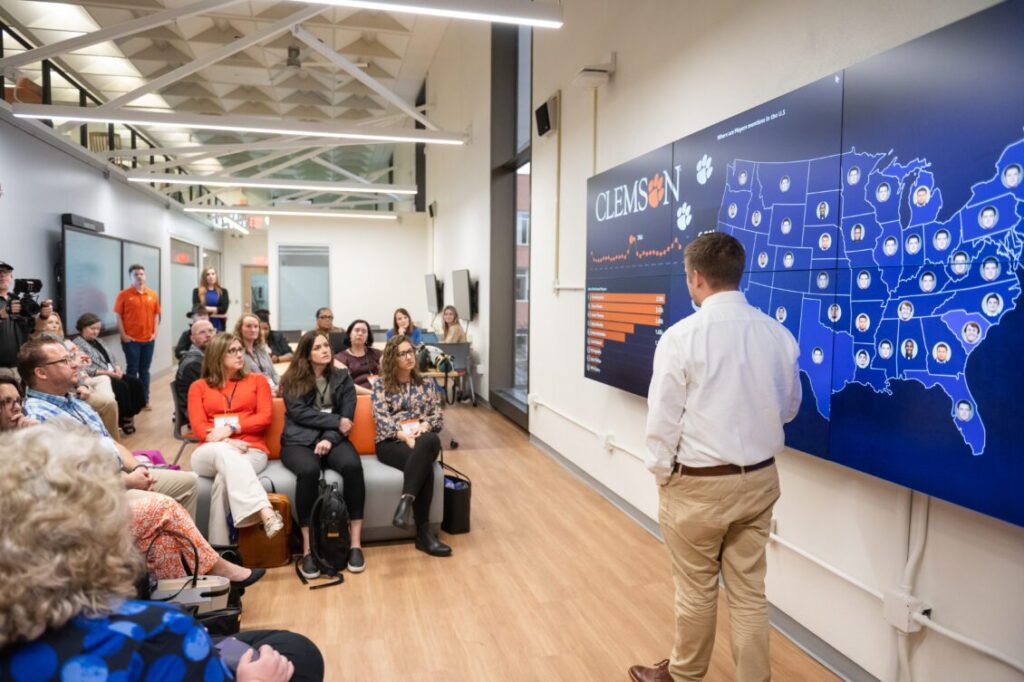
There is a common theme in the realm of sports communication that sees sport as a microcosm of society and Boatwright emphatically agrees: “You can’t separate sport from society. It is so deeply embedded in who we are. If you think about the everyday language we use to describe things — like how many sport references do we use in a day? Our bosses are looking for more out of us, we say they’re ‘moving the goalposts.’ A desperate attempt at something is a ‘hail mary,’ or ‘you miss 100 percent of the shots you don’t take.’
“People question sport as a serious thing to study, but in a research study 80 percent of people surveyed said they would shave a month off their life to see their team win a national championship because it means so much — that’s what gets me excited about this work.
It’s not just studying sports communication because I like sports, which I do obviously, but it’s also a way to dive deeper for me to really pursue some of the things that interest me about sport as a whole.”
Boatwright received the Robert H. Brooks Sports Science Institute’s GRIT award not only for his research, but also his humility and genuine love for Clemson.
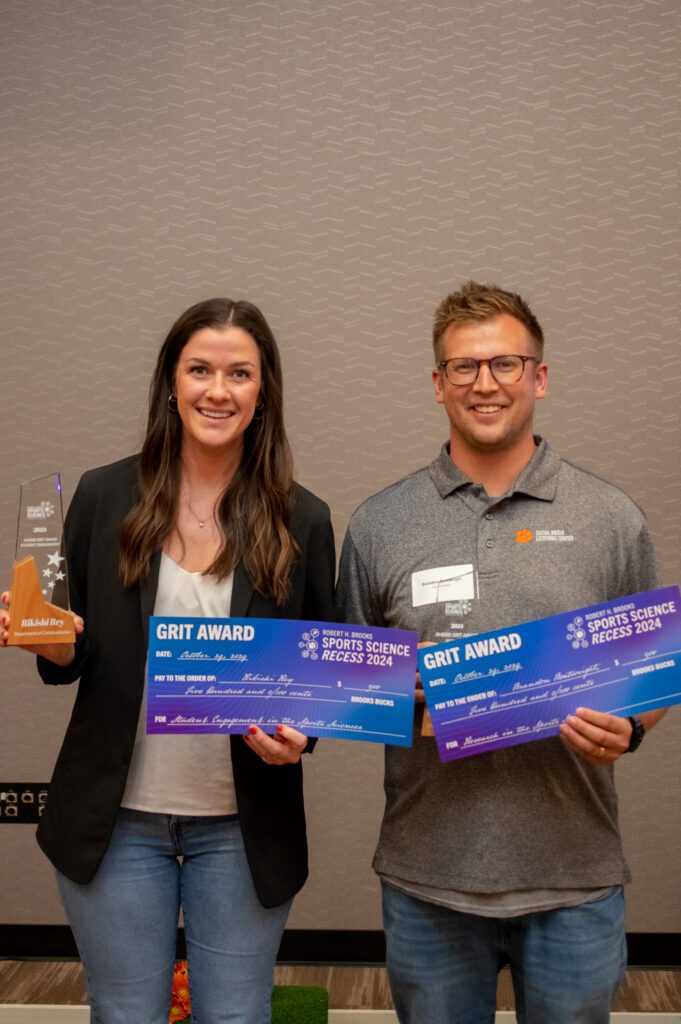
“It’s an honor to even be considered for an award in a program like this where there are so many people on campus doing such incredible research in sport, and not just in communication,” he said. “I did my undergrad and master’s here, taught for a little while before getting my Ph.D. and got the chance to come back and be a sports communication faculty in the same classrooms where I took sports communication classes. It was really a full circle moment for me as a Clemson Tiger.
“The fact that I won the award is kind of surreal and also really affirming of that full circle moment for me.”
Looking forward, Boatwright plans to continue his research with the help of the Institute. Harvesting social media data, conducting interviews and analyzing metrics all cost money, and the grants provided by RHBSSI will help him continue his studies for years to come. As Boatwright explained, “The basic questions that the social component helps us explain are why are people involved in sport? How and why do they consume sport? What does that mean for society?”
Clemson University has been a premier athletic destination for decades, which would not be possible without the work of people like Boatwright aiming to understand how and why sport is such an important facet of society. His passion for his craft and dedication to his alma mater makes him the true embodiment of a Clemson Tiger.

